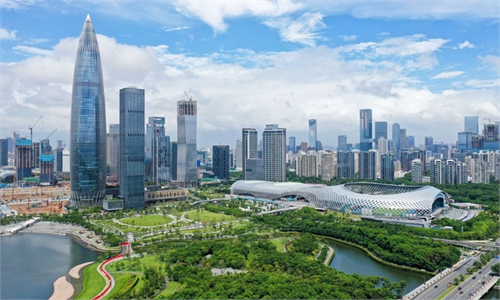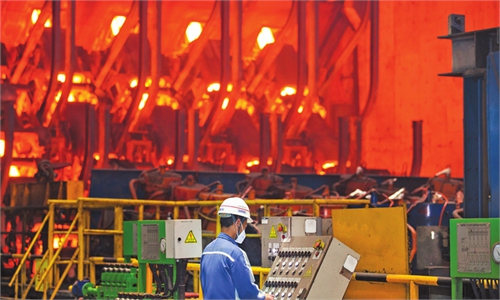
Internet companies Illustration: VCG
Chinese internet companies should take the lead in carbon emissions reduction in a bid to give back to society amid increasingly grim climate change challenges, a senior partner of Boston Consulting Group (BCG) said at a publication release event on Tuesday.
Even if 131 countries and regions have set or are considering a target of reducing emissions to net zero by mid-century, according to the UN, getting more practical participation from the business sector remains hard.
As a guideline for companies' sustainable development, BCG and the UN Global Compact released a jointly authored white paper, "Corporate Net Zero Pathway: Delivering the Paris Agreement and the Sustainable Development Goals", in Beijing on Tuesday.
The white paper noted that internet companies produce the heaviest volume of emissions in their data centers.
"The huge amount of data transmitted from data centers all over the world passes these companies' electricity-powered servers, adding up to around 1 percent of global electricity consumption," read the publication.
While most major US technology companies have already realized net-zero goals, "Chinese internet companies should take the lead in reducing carbon emissions. They rack up profits from society and should give back to society and play a better leadership role," Wu Xinyi, a managing director and senior partner of BCG based in Beijing, said at the release event on Tuesday.
For instance, the four US technology giants - Google, Facebook, Amazon and Microsoft - accounted for 28 percent of the global clean energy power purchase agreement volume in 2019, said the white paper.
Their Chinese counterparts in recent years have also ramped up efforts to improve efficiency through technological upgrades.
For example, technology giant Baidu whittled its average power usage effectiveness of data centers down to 1.14, and the energy consumption of its infrastructure is 76 percent lower than the industry average, said the white paper.
Lenovo, the world's largest personal computer maker, which has headquarters both in China and the US, implemented a low-temperature solder manufacturing technology in its PC manufacturing operations, reducing power consumption and carbon emissions by 35 percent.
Even though there is a lack of legislation to govern corporate carbon emissions in major economies around the world at present, more high emitting countries are accelerating their legislation and policy formation processes.
The white paper estimated that around 75 percent of global emissions could be governed by strict regulations by 2025.




